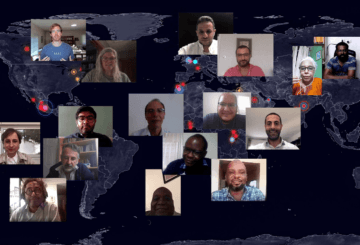Sophia Goodfriend in the Boston Review:
 These days automated systems have replaced secret agents. The protagonists of state-sanctioned surveillance are cybersecurity experts hacking into smart phones’ operating systems from a suburban office park, Microsoft engineers refining a biometric camera’s algorithm from their home office, and plain-clothes soldiers parsing through geolocation data for someone else to carry out a drone strike. Most of the people involved are not called agents or spies. They are product managers, engineers, data analysts, or “intelligence researchers.” Often their work feels so ordinary they might forget they are in the business of espionage. Sometimes they might not even realize it to begin with.
These days automated systems have replaced secret agents. The protagonists of state-sanctioned surveillance are cybersecurity experts hacking into smart phones’ operating systems from a suburban office park, Microsoft engineers refining a biometric camera’s algorithm from their home office, and plain-clothes soldiers parsing through geolocation data for someone else to carry out a drone strike. Most of the people involved are not called agents or spies. They are product managers, engineers, data analysts, or “intelligence researchers.” Often their work feels so ordinary they might forget they are in the business of espionage. Sometimes they might not even realize it to begin with.
Two recent books—Brian Hochman’s The Listeners: A History of Wiretapping in the United States and Roberto González’s War Virtually: The Quest to Automate Conflict, Militarize Data, and Predict the Future—join a cascade of new titles on the genealogy, impact, and future of contemporary surveillance regimes.
More here.
